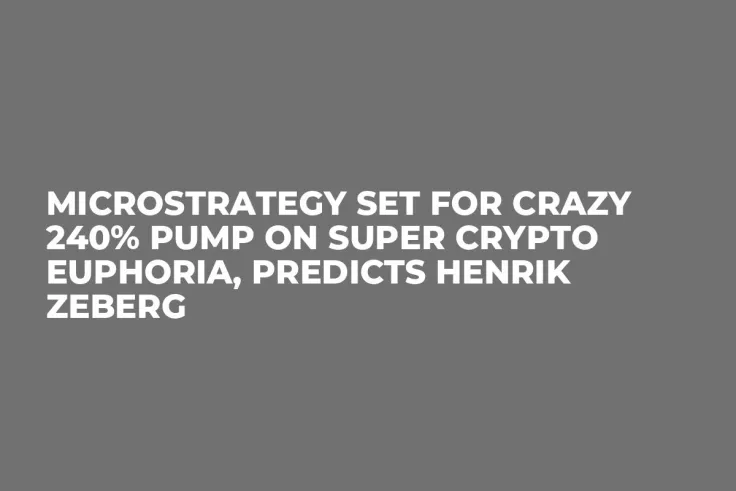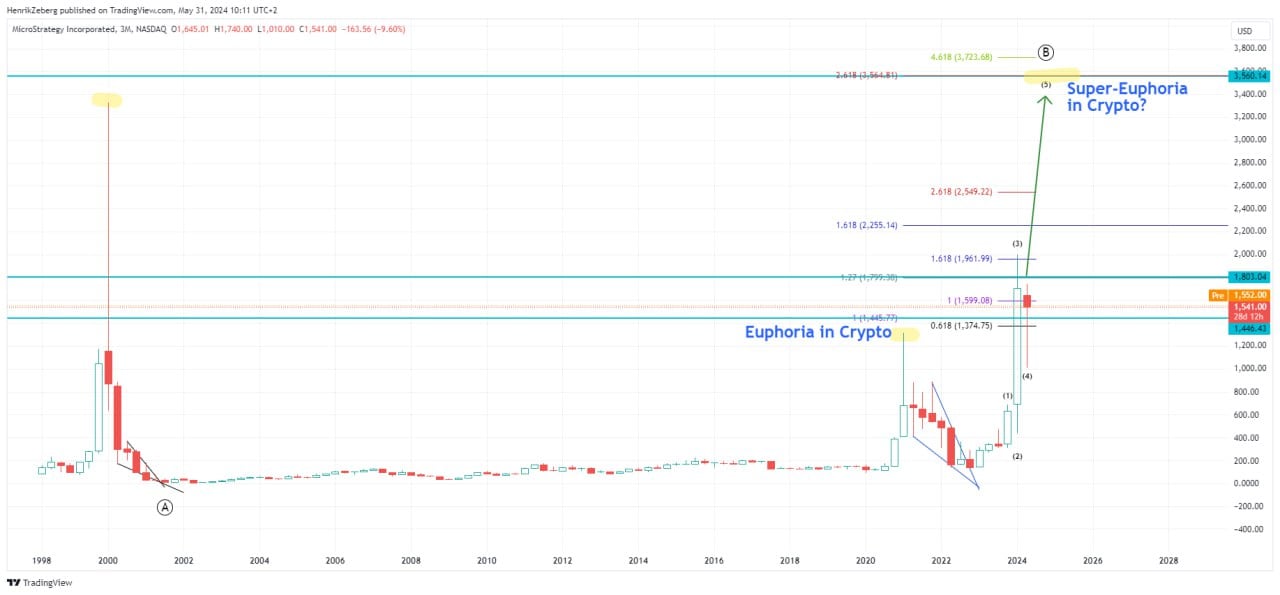
Disclaimer: The opinions expressed by our writers are their own and do not represent the views of U.Today. The financial and market information provided on U.Today is intended for informational purposes only. U.Today is not liable for any financial losses incurred while trading cryptocurrencies. Conduct your own research by contacting financial experts before making any investment decisions. We believe that all content is accurate as of the date of publication, but certain offers mentioned may no longer be available.
In a recent social media post, financial analyst Henrik Zeberg suggested that MicroStrategy, the business analytics firm led by CEO Michael Saylor, could be on the brink of a big surge in value. Zeberg's idea is that we are in for "Super Euphoria" on the crypto market, with Bitcoin (BTC) being a big factor.
Zeberg says that MicroStrategy's unwavering commitment to Bitcoin, with the company's entire business strategy revolving around the digital asset, could send its share price soaring to heights it has never seen before. He points to MicroStrategy's recent success, with its share price already surpassing levels seen in 2021.
The main thing Zeberg is saying is that the Elliott Wave structure and Fibonacci analysis show there is a potential target well above previous all-time highs dating back to 2000. If Zeberg's projections come true, MicroStrategy's stock could go up by a huge $240 and reach as high as $3,560.

MicroStrategy's CEO, Michael Saylor, who is a big supporter of Bitcoin, has been watched closely amid all this. Nasdaq data shows that Saylor was selling a lot of MSTR stock in April, which got investors wondering. But the selling stopped suddenly at the end of the month, which got people talking about Saylor's confidence in Zeberg's predictions and the company's future.
A big factor in MicroStrategy's potential rise is its big Bitcoin holdings, which are currently worth $14.66 billion. With an average purchase price of $35,180 per BTC, the company stands to reap significant profits, amounting to a remarkable 94.43% gain, or $7.12 billion.


 Vladislav Sopov
Vladislav Sopov Dan Burgin
Dan Burgin